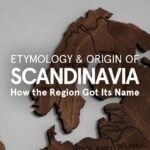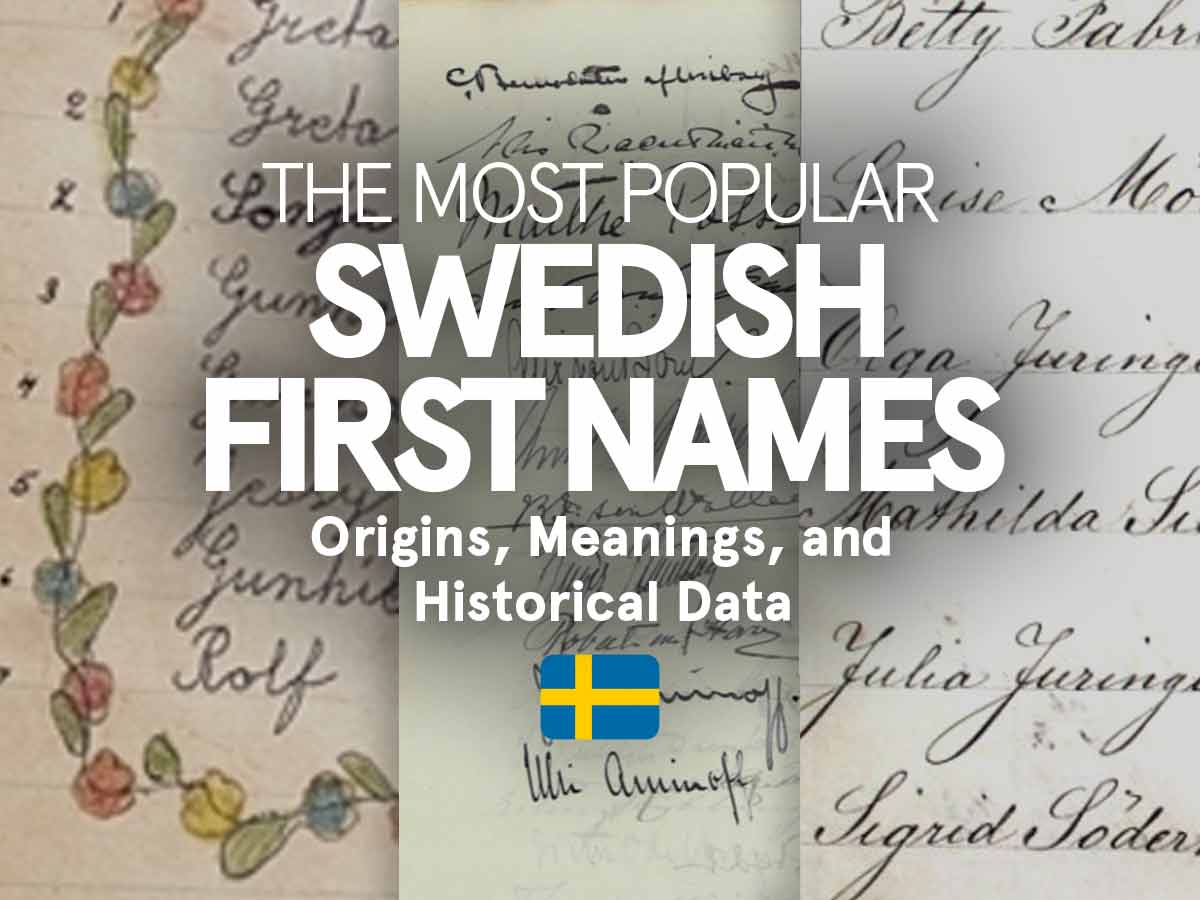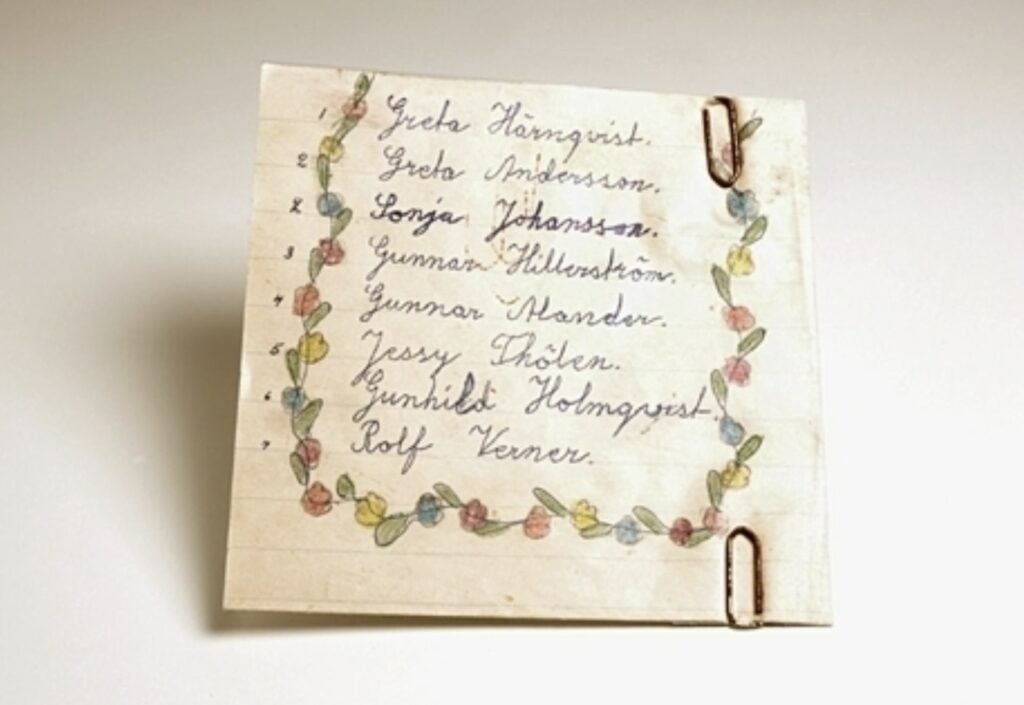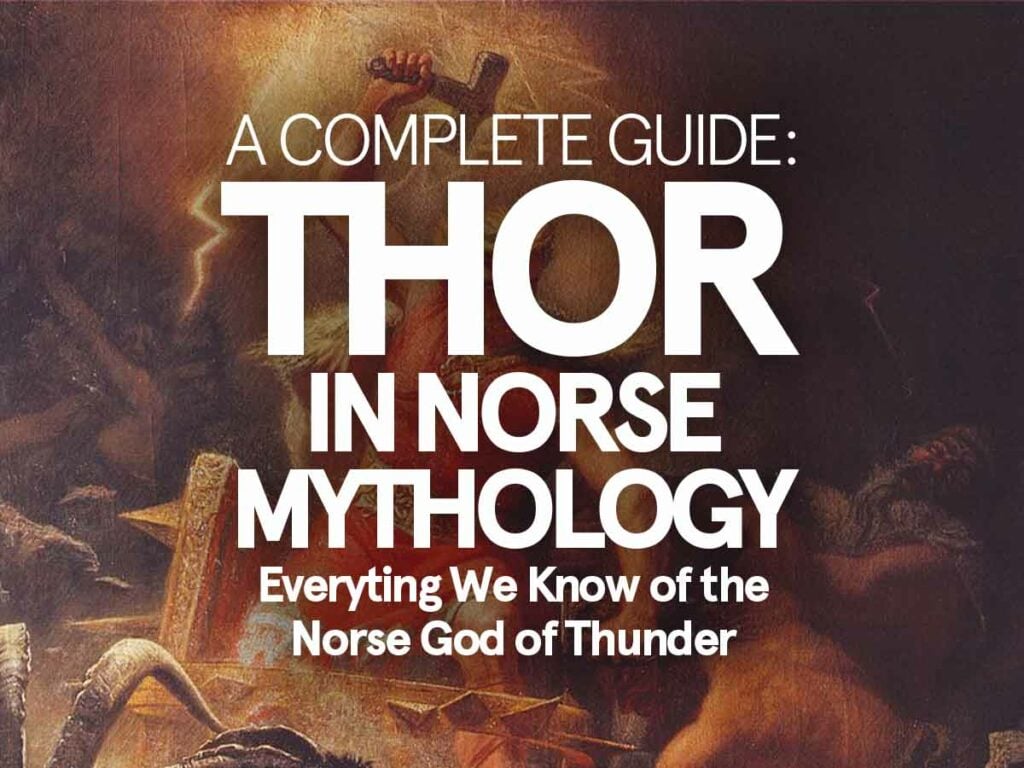What are Swedes actually named these days, and how has naming trends changed over time? Well, if we look back on the most popular Swedish first names over the last 100 years we see some names that come and go, but also a few timeless ones that seem to stand the test of time. To illustrate this, the most popular first name in the 1920s for Swedish females was Anna, and in 2022 it’s still Anna. For Swedish males, Lars was hugely popular in the 1920s-1950s, and is back again in the top spot in 2022 after a few decades outside the top 10.
In other words, though the popularity of most Swedish names rises and falls over the years, there are a select few that have stayed popular over the past 100 years.
Let’s start by taking a look at the most popular Swedish first names in 2025, what they mean, and where they come from. Then, we’ll dive into the historical data afterward, and analyze how naming trends have shifted over the years in Sweden.
Sweden’s Most Common First Names for Females in 2025
| Rank | First Name | Origins & Meaning (# of Swedes) |
|---|---|---|
| 1 | Anna | Anna stems from the biblical Hebrew Channa (mother of Maria and grandmother of Jesus), which means “mercy” or “the pardoned”. May also be related to the Celtic goddess Anu. (100 381) |
| 2 | Eva | Eva is a biblical Hebrew name meaning “life-giver” or “living one”, stemming from the Hebrew word Chawa. (85 496) |
| 3 | Maria | Maria is the Greek and Roman form of the Aramaic Mariam (and Hebrew Mirjam). It’s been used in Sweden since the 14th century and means “rebellious”, “long-awaited child”, or “loved” depending on the source. (85 408) |
| 4 | Karin | Karin is the Swedish short form of Katarina, stemming from the Greek word Katharos which means “pure”or “chaste”. (63 941) |
| 5 | Sara | Sara is a biblical Hebrew name that means “countess”, and was the name of Abrahams wife in the old testament. (58 702) |
| 6 | Christina | Kristina is the female form of Kristian/Christian, which stems from the Latin Christianius that means “the Christian”. (57 657) |
| 7 | Lena | Lena can be either the Scandinavian short form of the biblical Hebrew name Magdalena (which means “woman from Magdala”), or the English short form of the Greek name Helena, which means “the enchanted” and is commonly associated with Helen of Troy, or “the most beautiful woman in the world” in Ancient Greece. (57 595) |
| 8 | Emma | Emma is a name with Germanic roots, originally a nickname for Ermin/Emerentia(meaning “great”, “whole”, or “universal”. It has later also been used as a nickname for Emilia. (51 075) |
| 9 | Kerstin | Kerstin stems from Kristina, which is the female form of Kristian/Christian. The name stems from the Latin Christianius which means “the Christian”. (46 822) |
| 10 | Marie | Marie is another form of Maria and comes from the Aramaic Mariam (and HebrewMirjam). It means “rebellious”, “long-awaited child”, or “loved” depending on the source. (42 013) |
| 11 | Malin | Malin is a short form of the biblical Hebrew name Magdalena, which means “woman from Magdala”. (40 426) |
| 12 | Jenny | Jenny, or Jennie, is the English short form of Johanna, which in turn stems from the Hebrew Jochanna, meaning “God has mercy”. (39 824) |
| 13 | Ingrid | Ingrid is a Nordic name that comes from the Old Norse Ingifridh, which means “beautiful” or “beloved”. (39 198) |
| 14 | Hanna | Hanna comes from the Hebrew Channa and means “mercy” or “the pardoned”. (38 660) |
| 15 | Linda | Linda is a short form of any name ending in -lind, -linde, or -linda which is usually names of German origins. Linda means “soft” or “mild” in Old German, and “the beautiful” or “the petite” in Latin. (38 446) |
| 16 | Annika | Annika stems from the German Anneke, and means “little Anna”, which in turn stems from the biblical Hebrew Channa, “mercy” or “the pardoned”. May also be related to the Celtic goddess Anu. (38 224) |
| 17 | Susanne | Susanne is the French form of Susanna, a Greek name that originates from the Hebrew Shoshanna, which means “lily”. (37 596) |
| 18 | Elin | Elin is a Swedish form of the Greek name Helena, which means “the enchanted” and is commonly associated with Helen of Troy, or “the most beautiful woman in the world” according to Ancient Greece literature. (37 593) |
| 19 | Monica | May stem form the Latin monere (“warn, admonish“) and with Greek monachós (“monk“). (37 018) |
| 20 | Birgitta | Birgitta means means “the exalted one“, and is linked to the Irish saint Brigit, and also identical to the name of a Celtic goddess. The Latinised form of the name was Brigida. (36 495) |
| 21 | Sofia | Sofia is a Greek name, identical to the word sofía “wisdom“. (35 759) |
| 22 | Johanna | Johanna is a Swedish form of the Hebrew Jochanna, meaning “God has mercy”. (34 321) |
| 23 | Inger | Inger is a Nordic name stemming from the Old Norse name Ingegerd, which means “farmstead”, or “protected”. (33 523) |
| 24 | Carina | Carina or Carin is the Scandinavian short form of Katarina, stemming from the Greek word Katharos which means “pure”or “chaste”. (32 868) |
| 25 | Julia | Julia is the female form of Julius, which means “mother earth”. (31 898) |
| 26 | Elisabeth | Elisabeth is a biblical name stemming from the Hebrew Elisheva which means “God is perfection” or “God is my oath”. (31 516) |
| 27 | Ulla | Ulla is an Old Norse name that stems from the male name Ull, the Norse sun god. It may also derive from the German Ulrika, which means “heritage” or “powerful”. (30 193) |
| 28 | Linnéa | Linnea is a Swedish name that comes from the family name of Carl Linnaeus, “the father of modern taxonomy”, and ultimately a flower that was named after the famous botanist. (29 632) |
| 29 | Katarina | Katarina stems from the Greek word Katharos which means “pure” or “chaste”. (29 514) |
| 30 | Emelie | The female form of Emil, which is likely of Roman origins (as Æmilius) with the meaning “enthusiastic” or “driven”. (28 976) |
| 31 | Ida | Ida is a name with Old German origins, and means either “the diligent” or “the active”. Popular in Scandinavia as the sister in Astrid Lindgren’s children’s book “Emil of Lönneberga” was called Ida. (28 930) |
| 32 | Helena | Helena means “the enchanted” and is commonly associated with Helen of Troy (a.k.a. “the most beautiful woman in the world” in ancient Greece literature). (27 563) |
| 33 | Camilla | Camilla is a name of Latin origins, and means “servant of the sacrificed” or “sacrificial priestess”. (27 244) |
| 34 | Åsa | Åsa, or Åse/Aase, is an Old Norse name that means “queen of goddesses”. (27 069) |
| 35 | Anette | Anette stems from the German Anneke, and means “little Anna”, which in turn stems from the biblical Hebrew Channa, “mercy” or “the pardoned”. May also be related to the Celtic goddess Anu. (26 919) |
| 36 | Sandra | Sandra stems from Alexandra, a feminine form of Alexander, which is Greek and formed from two words meaning “to defend” or “to help”, and “man” (i.e. “the defender of men”). 26 268 |
| 37 | Maja | Maja is a Scandinavian/German/Slavic form of the greek Maia (meaning “princess”), and also a short form of Maria in Sweden since the 14th century (which either means “rebellious”, “long-awaited child”, or “loved” depending on the source. (25 794) |
| 38 | Gunilla | Gunilla is a Latinised form of the Old Norse Gunhild, which is composed of the words gunnr and hild, meaning “warrior maiden“. (25 496) |
| 39 | Ann | Ann is the English form of Anna, originating from the Hebrew Channa, meaning “mercy” or “the pardoned”. (25 312) |
| 40 | Anita | Anita is a Spanish form of the German Anneke, and means “little Anna”. It likely stems from the biblical Hebrew Channa, “mercy” or “the pardoned”, but may also be related to the Celtic goddess Anu. (24 976) |
| 41 | Amanda | Amanda is a Latin name meaning “the lovable one”. (24 635) |
| 42 | Marianne | Marianne is the French form of the Latin Mariana, which means “female”. (24 409) |
| 43 | Anneli | Anneli or Annelie is a nickname of Anna, Ann-Louise or Anna-Lovisa. It can be translated to “gracious” or “merciful”. (24 365) |
| 44 | Margareta | Margareta originates from a Persian word for “pearl”, which is the root of the Greek margarit, and the Latin margarita. The name started being used in Sweden around the 1100s. (24 319) |
| 45 | Therese | Therese comes from the Greek Teresia, possibly formed into a word related to hunting. The name would then mean ‘the huntress’. Teresia has also been associated with the Greek island name Thæra. (24 166) |
| 46 | Josefin | Josefin, or Josefina, is a feminine form of Joseph which means “may God multiply”. (23 875) |
| 47 | Cecilia | Cecilia stems from the Latin Caecilia, originally borne by the female members of the Roman family Caecilius, whose name is taken from the word caecus, which means “blind”. Other Nordic variants include Sissela, Silje and Silja. (23 494) |
| 48 | Jessica | Jessica may be an English form of the Hebrew Jiska, interpreted as “God beholds”. It has also been thought to have been created by William Shakespeare, with whom Jessica is the daughter of Shylock in The Merchant of Venice. (23 392) |
| 49 | Helen | Helen means “the enchanted” and is commonly associated with Helen of Troy, or “the most beautiful woman in the world” in Ancient Greece litterature. (23 104) |
| 50 | Lisa | Lisa is a Swedish short form of the originally Hebrew name Elisabet (Elizabeth) meaning “God is perfection”. (22 539) |

Sweden’s Most Common First Names For Males in 2025
| Rank | First Name | Origins & Meaning (# of Swedes) |
|---|---|---|
| 1 | Lars | Lars is a short form of the Latin Laurentius which means “crowned with laurel wreath” or “man from Laurentum”. (83 851) |
| 2 | Mikael | Mikael, or Michael, is a biblical Hebrew name that means “who is like God”. (79 938) |
| 3 | Anders | Anders is a Nordic name that stems from the Greek word Andro which means “human”, “man”, or “miracle” depending on the source. (76 485) |
| 4 | Johan | Johan is a short form of Johannes, a Hebrew name meaning “the lord has mercy”. There are three Swedish kings named Johan throughout history. (74 860) |
| 5 | Erik | Erik, or Eric, is a Nordic name that originates from the Old Norse Airikr which means “lone ruler” or “always powerful”. (65 366) |
| 6 | Per | Per, also Pehr and Pär, is the Nordic short form of the Latin/Greek Petrus, meaning “rock”. (64 451) |
| 7 | Peter | Peter is the English form of the Latin/Greek Petrus, meaning “rock”. (62 457) |
| 8 | Thomas | Thomas comes from the Greek Θωμᾶς(or Thōmas) which stems from the Aramaic word for “twin”. (60 759) |
| 9 | Karl | Karl or Carl (usually nicknamed “Kalle”) is a Nordic name originating from the Old Germanic Karlaz, which means “free man”. A total of ten Swedish kings, including the current Carl XVI Gustaf, has the name Karl. (59 578) |
| 10 | Jan | Jan is a German short form of Johannes, which is of Hebrew origins and means “the lord has mercy”. (58 582) |
| 11 | Daniel | Daniel is a Hebrew name that means “God is my judge”. (57 953) |
| 12 | Fredrik | Fredrik, or Frederik, is a name of German origins meaning “peaceful ruler”. There has been a total of eleven Scandinavian kings with this name, most of them Danish. (54 741) |
| 13 | Mohammad | Mohammad, or Muhammed, comes from the Arabic Muḥammad “the highly praised”. (45 885) |
| 14 | Andreas | Andreas is a Greek name that stems from the word Andro which means “human”, “man”, or “miracle” depending on the source. (45 593) |
| 15 | Stefan | Stefan is a form of the Latin Stephanus, which comes from the Greek Stéfanos, “the crowned”. (44 960) |
| 16 | Hans | Hans is a German short form of Johannes, which is a Hebrew name that means “the lord has mercy”. (44 869) |
| 17 | Mats | Mats, Matts, is a Swedish short form of the Greek Mattias, which in turn derives from the Hebrew names (Mattitjahu) or (Mattitja), meaning “the gift of God”. The form Mats has been used in Sweden since the end of the 1400s. (42 947) |
| 18 | Marcus | Marcus, or Mark, is a biblical name of Latin origin, possibly a derivation of the name of Mars, the god of war. (42 911) |
| 19 | Mattias | Mattias, or Mathias, is a Greek form of the Hebrew name Mattitjahu which means “god’s gift”. (42 037) |
| 20 | Magnus | Magnus stems from Magne, or Magni, an Old Norse name that means “the powerful”. In Norse mythology Magne was Thor’s strongest son, born by the goddess Járnsaxa. (41 982) |
| 21 | Oscar | Oscar comes from the Celtic “Oscur”, which in turn is believed to have come from the Old Norse Ásgeirr with the meaning “spear of the gods”. The Frankish form of the name is Ansgar. Another theory behind the name is that it stems from the two Celtic words “os” and “cara”, which would mean “friend of the deers” in Celtic. (41 409) |
| 22 | Jonas | Jonas stems from the Greek/LatinJonah that in turns comes from the biblical Hebrew name Yonah, which means “white dove”. (41 151) |
| 23 | Alexander | Alexander is Greek and formed from two words meaning “to defend” or “to help”, and “man” (i.e. “the defender of men“). (41 008) |
| 24 | Niklas | Niklas, Nichlas, Nicklas or Niclas is a Nordic short form of the name Nikolaus, which has Greek origins. Nikolaus is formed from the words Nike – “victory”, and laos – “people” (i.e. “victory of the people”). (39 806) |
| 25 | Martin | Martin stems from the Latin Martinus, which means “Martian”. (39 248) |
| 26 | Bengt | Bengt is a Nordic and specifically Swedish form of the Latin Benedictus which means “the blessed”. It’s been in use in Sweden since the 1100s. (38 859) |
| 27 | Bo | Bo is an Old Norse name that means “living”, “resident”, “farmer”, or “soldier”. (36 974) |
| 28 | Nils | Nils is a Swedish short form of the greek name Nikolaus, which stems from the words Nike – “victory”, and laos – “people” (i.e. “victory of the people”). (35 735) |
| 29 | Viktor | Viktor is a Latin name, identical to the word victor which means “victorious”. In Sweden it became a fashionable name in the late 1800s. (35 712) |
| 30 | Patrik | Patrik, or Patrick, is connected to the Latin pedjo, meaning “king“, as well as the Latin patricius, meaning “nobleman“. (35 466) |
| 31 | Björn | Björn is an Old Norse name of Old Germanic origin, stemming from the word bernuz which means “bear”. (34 705) |
| 32 | David | David is a biblical name of Hebrew origin meaning “one who is loved“. (33 629) |
| 33 | Filip | Philip is a form of the Greek Fílippos which means “horse friend”, and is thought to have come to Sweden via Russia. (33 414) |
| 34 | Henrik | Henrik, or Henric, stems from the German Heinrich that means “ruler of the home”. (32 976) |
| 35 | Leif | Leif is a Nordic name that was originally a short form of names that contained leifr, which means “heir”. (32 424) |
| 36 | Joakim | Joakim stems from the Greek Jehoiakim, “Yahweh/God raises up, establishes“. 32 368 |
| 37 | Emil | Emil is likely of Roman origins (as Æmilius) with the meaning “enthusiastic” or “driven”. (32 270) |
| 38 | Christer | Christer, or Krister, stems from the Latin Christianius which means “the Christian”. (31 777) |
| 39 | Ulf | Ulf is an Old Norse name that means “wolf”. It is a popular name for Swedish men aged 30-60, but not very popular for newborn babies in the Nordics in general. (31 211) |
| 40 | Simon | Simon is a biblical name stemming from the Hebrew verb “to hear“, and the Greek Símōn (and Symeōn). (31 199) |
| 41 | Sven | Sven, or Svein, is an Old Norse name that means “young man”, or “youth”. (30 242) |
| 42 | Christoffer | Christopher, or Kristoffer, stems from the Latin Christianius which means “the Christian”. (29 752) |
| 43 | Anton | Anton is a male name of German origin. It corresponds to the Latin Antonius, meaning “the invaluable one“. The name has been used in Sweden since the early 1600s. (28 940) |
| 44 | William | William, or Vilhelm/Wilhelm, is a Germanic name in use in Scandinavia since the 12th century. The name is built on the two words “will” and “helmet”. (28 514) |
| 45 | Christian | Christian, or Kristian, stems from the Latin Christianius which means “the Christian”. (27 918) |
| 46 | Robert | Robert is a German name, where the prefix contains Old High German hruod, or hrōd, corresponding to Old West Norse hróðr, which means “glory, praise”. (27 905) |
| 47 | Gustav | Gustav is a Swedish name, whose origin and meaning could be “the rod of the gods“, or “the support of the gods”. (27 875) |
| 48 | Lucas | Lucas is of Roman/Greek origins and means “of Lucania” (a region in southern Italy) as well as being connected to the patron saint of doctors, artists, and creatives. (27 495) |
| 49 | Tommy | Tommy comes from Thomas, the Greek Θωμᾶς (or Thōmas), which in turn stems from the Aramaic word for “twin”. (27 334) |
| 50 | Kjell | Kjell is a Nordic name that stems from Kættil or Kettil, which means “helmet”. (26 388) |
Historical Data: The Most Common Swedish First Names of Every Decade Since 1920
Looking back at Sweden’s most popular names over the past 100+ years, we can observe a few trends:
- Classic Swedish names such as Anna and Erik were the most popular in the early 1900s, gradually disappeared, and then became popular yet again in the late 1900s/early 2000s
- The names Anna, Ingrid, Karin, and Kerstin have been the most popular for the longest time among Swedish Women
- The names Erik, Lars, and Bengt have been the most popular for the longest time among Swedish men
The most popular female names in Sweden 1920-2020
(click Show More to see more names, and scroll to the side to see more decades)
| 2010s | 2000s | 1990s | 1980s | 1970s | 1960s | 1950s | 1940s | 1930s | 1920s | |
|---|---|---|---|---|---|---|---|---|---|---|
| Alice | 1 | 10 | ||||||||
| Maja | 2 | 3 | ||||||||
| Elsa | 3 | |||||||||
| Ella | 4 | |||||||||
| Julia | 5 | 2 | ||||||||
| Ebba | 6 | |||||||||
| Olivia | 7 | |||||||||
| Wilma | 8 | 6 | ||||||||
| Lilly | 9 | |||||||||
| Agnes | 10 | |||||||||
| Emma | 1 | 1 | 4 | |||||||
| Elin | 4 | 3 | ||||||||
| Linnéa | 5 | |||||||||
| Ida | 7 | |||||||||
| Hanna | 8 | |||||||||
| Alva | 9 | |||||||||
| Sara | 2 | 2 | 6 | |||||||
| Amanda | 4 | |||||||||
| Hanna | 5 | |||||||||
| Johanna | 6 | 8 | ||||||||
| Julia | 7 | |||||||||
| Emelie | 8 | 10 | ||||||||
| Josefin | 9 | |||||||||
| Anna | 10 | 1 | 1 | 9 | 7 | 1 | ||||
| Maria | 3 | 2 | 1 | |||||||
| Malin | 5 | 5 | ||||||||
| Jenny | 6 | 4 | ||||||||
| Linda | 7 | 3 | ||||||||
| Sandra | 9 | |||||||||
| Camilla | 7 | |||||||||
| Åsa | 8 | |||||||||
| Ulrika | 9 | |||||||||
| Marie | 10 | 7 | ||||||||
| Eva | 2 | 1 | 1 | |||||||
| Susanne | 3 | |||||||||
| Lena | 4 | 2 | ||||||||
| Carina | 5 | |||||||||
| Kristina | 6 | 3 | ||||||||
| Annika | 8 | |||||||||
| Anette | 10 | |||||||||
| Karin | 4 | 5 | 4 | 3 | ||||||
| Kerstin | 5 | 2 | 1 | 7 | ||||||
| Monica | 6 | |||||||||
| Birgitta | 7 | 4 | ||||||||
| Inger | 8 | 3 | 6 | |||||||
| Elisabeth | 9 | |||||||||
| Ingrid | 10 | 2 | ||||||||
| Ulla | 6 | 3 | 6 | |||||||
| Ingrid | 7 | 2 | ||||||||
| Anita | 8 | |||||||||
| Monica | 9 | |||||||||
| Margareta | 10 | |||||||||
| Siv | 5 | |||||||||
| Barbro | 8 | |||||||||
| Gun | 9 | |||||||||
| Berit | 10 | |||||||||
| Rut | 4 | |||||||||
| Inga | 5 | |||||||||
| Elsa | 8 | |||||||||
| Britta | 9 | |||||||||
| Birgit | 10 |
The most popular male names in Sweden 1920-2020
(click Show More to see more names, and scroll to the side to see more decades)
| 2010s | 2000s | 1990s | 1980s | 1970s | 1960s | 1950s | 1940s | 1930s | 1920s | |
|---|---|---|---|---|---|---|---|---|---|---|
| William | 1 | 2 | ||||||||
| Oskar | 2 | 1 | 6 | |||||||
| Lucas | 3 | 3 | ||||||||
| Liam | 4 | |||||||||
| Elias | 5 | 9 | ||||||||
| Oliver | 6 | |||||||||
| Hugo | 7 | |||||||||
| Alexander | 8 | 6 | 4 | |||||||
| Mohamed | 9 | |||||||||
| Charlie | 10 | |||||||||
| Filip | 4 | 9 | ||||||||
| Erik | 5 | 2 | 6 | 10 | 4 | |||||
| Alexander | 6 | |||||||||
| Viktor | 7 | 5 | ||||||||
| Emil | 8 | |||||||||
| Anton | 10 | 10 | ||||||||
| Marcus | 1 | 8 | ||||||||
| Simon | 3 | |||||||||
| Johan | 7 | 1 | 1 | |||||||
| Daniel | 8 | 2 | 4 | |||||||
| Andreas | 3 | 9 | ||||||||
| Fredrik | 4 | 2 | ||||||||
| Mikael | 5 | 3 | 1 | |||||||
| Christoffer | 7 | |||||||||
| Mattias | 9 | 6 | ||||||||
| Niklas | 10 | |||||||||
| Magnus | 5 | 10 | ||||||||
| Anders | 7 | 2 | 3 | |||||||
| Peter | 8 | 3 | 10 | |||||||
| Jonas | 10 | |||||||||
| Thomas | 4 | 6 | ||||||||
| Lars | 5 | 1 | 1 | 3 | 7 | |||||
| Per | 6 | 5 | 9 | |||||||
| Mats | 7 | 4 | ||||||||
| Stefan | 8 | |||||||||
| Jan | 9 | 2 | 2 | |||||||
| Hans | 7 | 5 | 7 | |||||||
| Bengt | 8 | 4 | 4 | 6 | ||||||
| Bo | 9 | 3 | 9 | |||||||
| Leif | 6 | |||||||||
| Karl | 7 | 1 | 1 | |||||||
| Sven | 8 | 2 | 2 | |||||||
| Kjell | 9 | |||||||||
| Rolf | 10 | 8 | ||||||||
| Stig | 5 | 5 | ||||||||
| Nils | 6 | 3 | ||||||||
| Arne | 8 | |||||||||
| Gunnar | 10 |
Source: Nordic Perspective 2022
And here are the top 10 names split up in to each decade since the 1920s:
The Most Common Swedish Names in 2010: Alice & William
The Most Common Female First Names in 2010
- Alice
- Maja
- Elsa
- Ella
- Julia
- Ebba
- Olivia
- Wilma
- Lilly
- Agnes
The Most Common Male First Names in 2010
- William
- Oskar
- Lucas
- Liam
- Elias
- Oliver
- Hugo
- Alexander
- Mohamed
- Charlie
The Most Common Swedish Names in 2000: Emma & Oskar
The Most Common Swedish First Names for Females in 2000
- Emma
- Julia
- Maja
- Elin
- Linnéa
- Wilma
- Ida
- Hanna
- Alva
- Alice
The Most Common Swedish First Names for Males in 2000
- Oskar
- William
- Lucas
- Filip
- Erik
- Alexander
- Viktor
- Emil
- Elias
- Anton
The Most Common Swedish Names in 1990: Emma & Marcus
Nittiotalet var den digitala revolutionens årtionde och vi lärde oss förstå ”the (mighty) world wide web”. Ståtliga kungliga namn föll den nya generationens föräldrar på läppen. Oskar och Alexander klättrade på bra på pojksidan, och eleganta franskklingande namn som Josefin och Emelie på flicksidan.
The Most Common Swedish First Names for Females in 1990
- Emma
- Sara
- Elin
- Amanda
- Hanna
- Johanna
- Julia
- Emelie
- Josefin
- Anna
The Most Common Swedish First Names for Males in 1990
- Marcus
- Erik
- Simon
- Alexander
- Viktor
- Oskar
- Johan
- Daniel
- Filip
- Anton
The Most Common Swedish Names in 1980: Anna & Johan
The Most Common Swedish First Names for Females in 1980
- Anna
- Sara
- Maria
- Emma
- Malin
- Jenny
- Linda
- Johanna
- Sandra
- Emelie
The Most Common Swedish First Names for Males in 1980
- Johan
- Daniel
- Andreas
- Fredrik
- Mikael
- Erik
- Christoffer
- Marcus
- Mattias
- Niklas
The Most Common Swedish Names in 1970: Anna & Johan
The Most Common Swedish First Names for Females in 1970
- Anna
- Maria
- Linda
- Jenny
- Malin
- Sara
- Camilla
- Åsa
- Ulrika
- Marie
The Most Common Swedish First Names for Males in 1970
- Johan
- Fredrik
- Mikael
- Daniel
- Magnus
- Mattias
- Anders
- Peter
- Andreas
- Jonas
The Most Common Swedish Names in 1960: Maria & Mikael
The Most Common Swedish First Names for Females in 1960
- Maria
- Eva
- Susanne
- Lena
- Carina
- Kristina
- Marie
- Annika
- Anna
- Anette
The Most Common Swedish First Names for Males in 1960
- Mikael
- Anders
- Peter
- Thomas
- Lars
- Per
- Mats
- Stefan
- Jan
- Magnus
The Most Common Swedish Names in 1950: Eva & Lars
The Most Common Swedish First Names for Females in 1950
- Eva
- Lena
- Kristina
- Karin
- Kerstin
- Monica
- Birgitta
- Inger
- Elisabeth
- Ingrid
The Most Common Swedish First Names for Males in 1950
- Lars
- Jan
- Anders
- Mats
- Per
- Thomas
- Hans
- Bengt
- Bo
- Peter
The Most Common Swedish Names in 1940: Eva & Lars
The Most Common Swedish First Names for Females in 1940
- Eva
- Kerstin
- Inger
- Birgitta
- Karin
- Ulla
- Ingrid
- Anita
- Monica
- Margareta
The Most Common Swedish First Names for Males in 1940
- Lars
- Jan
- Bo
- Bengt
- Hans
- Leif
- Karl
- Sven
- Kjell
- Rolf
The Most Common Swedish Names in 1930: Kerstin & Karl
The Most Common Swedish First Names for Females in 1930
- Kerstin
- Ingrid
- Ulla
- Karin
- Siv
- Inger
- Anna
- Barbro
- Gun
- Berit
The Most Common Swedish First Names for Males in 1930
- Karl
- Sven
- Lars
- Bengt
- Stig
- Nils
- Hans
- Rolf
- Bo
- Erik
The Most Common Swedish Names in 1920: Anna & Karl
The Most Common Swedish First Names for Females in 1920
- Anna
- Ingrid
- Karin
- Rut
- Inga
- Ulla
- Kerstin
- Elsa
- Britta
- Birgit
The Most Common Swedish First Names for Males in 1920
- Karl
- Sven
- Nils
- Erik
- Stig
- Bengt
- Lars
- Arne
- Per
- Gunnar
Sources:
https://www.isof.se/lar-dig-mer/kunskapsbanker/lar-dig-mer-om-arets-namn-och-handelser
https://www.svenskaakademien.se/svenska-akademien/almanackan/namnens-ursprung-och-betydelse
 The Most Popular Names in the Nordics (Real Data)
The Most Popular Names in the Nordics (Real Data) Viking, Norse, Scandinavian & Nordic Names: The Ultimate List
Viking, Norse, Scandinavian & Nordic Names: The Ultimate List Why It Is Called Scandinavia (Origins & Meaning)
Why It Is Called Scandinavia (Origins & Meaning) Swedish Last Names: Statistics, Meanings, Origins & American Versions
Swedish Last Names: Statistics, Meanings, Origins & American Versions



